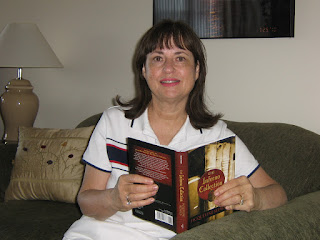
by Jacqueline Seewald
Charles Dickens and Lady Gaga are examples of celebrities that respectively had and have the ability to build a platform, a brand, that’s hugely successful. Charles Dickens’s novels were vastly popular. Part of that had to do with knowing how to become a literary superstar. Modern day Lady Gaga is also a genius at self-promotion and creating publicity. So what are the secrets to their success? And how can that help the rest of us? What makes Dickens and Gaga so popular and therefore successful?
As for Lady Gaga, she has also invented herself as a public persona. Her elaborate costumes may be a disguise of sorts but they are part of her creativity. People may want to hear her sing, but they also want to comment on each new outlandish costume creation. No problem for Gaga to write a bestseller if she chooses or call attention to bullying as she has done in launching the Born This Way Foundation.
So what can we learn from these two celebrities in launching our careers? Probably that we need to draw from our own experience of life, to be genuine, to embrace others, talk to people, let them know we exist. Key words are the three P’s: promotion, publicity, and platform.
Here’s a checklist of promotional tools intended to create publicity and build a platform for authors with a new novel:
l. Establish a website.
2. Create a blog.
3. Volunteer to guest blog.
4. Send out news releases.
5. Make public appearances (libraries, bookstores, etc)
6. Get involved in social networking (Facebook, Twitter, Goodreads, etc.)
We may need to think outside the box to be as creative in publicizing our work as Dickens and Gaga. My latest novel DEATH LEGACY, a romantic mystery thriller, is on the launch pad. I am currently offering a Goodreads giveaway of three advance review trade paperback size copies of my novel. (It’s a start!)
http://www.goodreads.com/giveaway/show/22729-death-legacy
Any thoughts or comments are very welcome in this forum.
